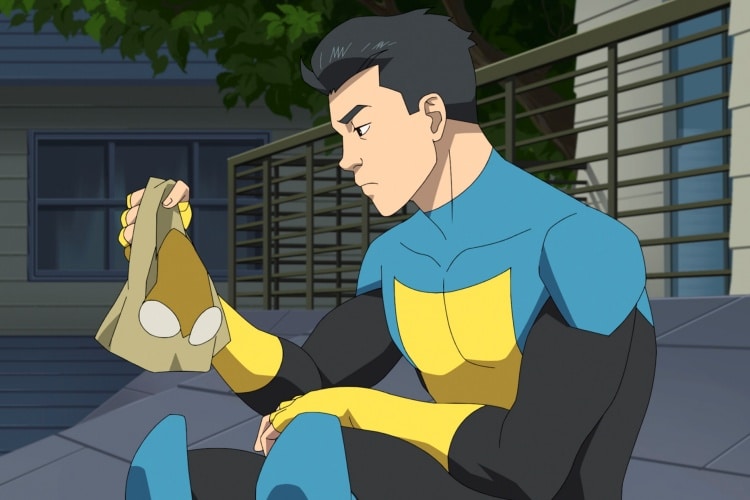A Personal History
Main Cast: Freida Pinto, Hiam Abbass, Alexander Siddig
Director: Julian Schnabel
The more historical drama I watch, the more intrigued I am with the genre. I loved history in school, but let’s face it – schoolbook history can be dull. It’s also by its very nature limited in scope. Film is now playing a crucial role in bringing real history, the personal stories that make us feel and care, back to the masses. Long forgotten or never told tales of those who lived through turbulent times are now immortalized on screen. In the case of Miral, Julian Schnabel takes the Isreali/Palestinian conflict and films it through the eyes of a young girl.
Miral is not yet born when the story opens. It’s 1947 and a woman finds a group of orphaned Palestinian children huddled in an alley. She takes them to her home and tends to them, eventually using all of her family’s resources to open an orphanage where children are educated and cared for outside of the conflict that rages around them. The woman is Hind Husseini and it is she who forms the framework for the life of our main character, Miral.
Miral is born in 1973 and finds herself an unusual student at Husseini’s school. She has a father who loves her but spends each week in the nurturing, protected environment of the school, going home each weekend. As she grows into a young woman she begins to see the struggle around her and yearns not only for the freedom of her people but also for rebellion against what she sees as the confines of her life. She’s a typical teenager living in time and place where normal teenage rebelliousness can be deadly. The film follows her as she patches together her world with her upbringing and tries to find some sort of peace in a place where peace is scarce.
Julian Schnabel, acclaimed director of The Diving Bell and the Butterfly, films a beautiful movie. His camera angles, use of soft focus and emphasis on the feel of the locale all work together to keep us in the story, in the times and places he’s showing. We feel not only for the characters but at a deeper level we feel the hopelessness of the people forced to try and live their lives in fear.
Yet Miral is not forever depressed and desolate, nor are her peers or mentors. They are simply living. Her father loves
her fiercely and struggles to give her hope and her school gives her the education she needs to see beyond the violence and hopefully craft her own future.
The film most definitely has a pro-Palestinian bent. It is not the story of the Israeli/Palestinian conflict, it is the story of one girl. The one girl is Palestinian and the story is told in the way that the author of the source material remembers living. She is not impartial and it is her story. That’s part of what makes it beautiful – we know there are more layers, but
we see what she sees. And what she sees is a heartbreakingly personal collection of indignities and fears. Through her we better understand the people involved in this conflict – it isn’t about politics for them, it’s about their lives, day to day.
Playing the role of Miral is Freida Pinto from Slumdog Millionaire. She’s a good but inexperienced actress who was given a chance at the role because she bears quite a resemblance to Rula Jabreal, the author of the book – the real Miral. She proves that she can handle a very complex character that grows from an innocent, giggling teenager into a strong, graceful woman. Her father is played by Alexander Siddig who I do not believe I’ve seen in anything since Star Trek: Deep Space 9. He’s much better than his stilted, arrogant doctor of the future in Miral. You feel his pain when he leaves his daughter to be schooled away from home and his terror when she begins to rebel. It’s a very nicely nuanced performance, one I did not expect and as such more deeply
appreciated. Hiam Abbass is fabulous as Hind Husseini. Passionate, knowledgeable and kind, she founds the school that becomes the stable environment allowing war orphans to become more than just another part of the problem. She is the grounding force for Miral. Though Husseini died in 1994 her school remains open.
I encourage anyone who watches Miral to watch the DVD extras. Well, I don’t know about the feature commentary – I never watch that. Like the rest of the world, I don’t have time. But the Making Of featurette and the Q&A session with Schnabel and others with knowledge of the conflict are both very much worth the time. They help put the film into even greater perspective and allow us to appreciate everything that went into the production and continues to go into the efforts of regular people to see an end to the violence in the region.
Miral is a slice of history that needs to be seen. Reading articles, textbooks or magazine gives no real perspective on the real lives that are affected every day by political upheaval across the globe. We become removed, overwhelmed and pull away when we most need to engage and recognize that the people living there are no different from the people living here. Definitely recommended for anyone who likes historical drama, admires Julian Schnabel, is interested in the personal consequences suffered by those in war zones or even those who just want to see what Freida Pinto has to offer after Slumdog Millionaire. You won’t be disappointed.
photos by Jeff Karpala, Auggie Tolosa

Sue reads a lot, writes a lot, edits a lot, and loves a good craft. She was deemed “too picky” to proofread her children’s school papers and wears this as a badge of honor. She is also proud of her aggressively average knitting skills She is the Editorial Director at Silver Beacon Marketing and an aspiring Crazy Cat Lady.








Leave a Reply